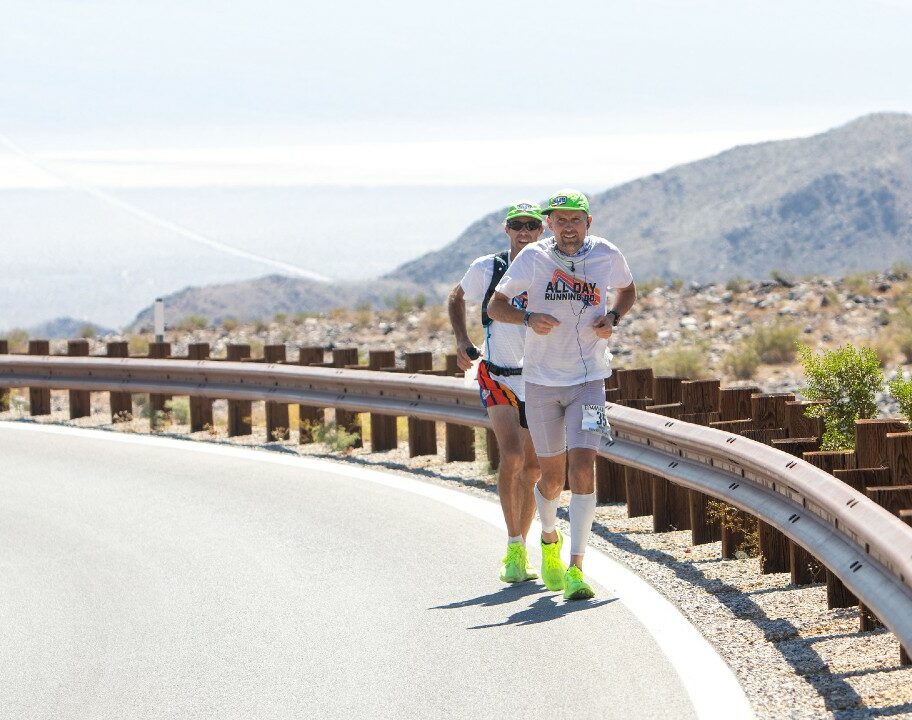Billed as the ‘toughest footrace on earth’, the Marathon des Sables is a 250km (156-mile) six-day ultra marathon that takes place in the Sahara Desert in southern Morocco.
Date, start time & live tracking
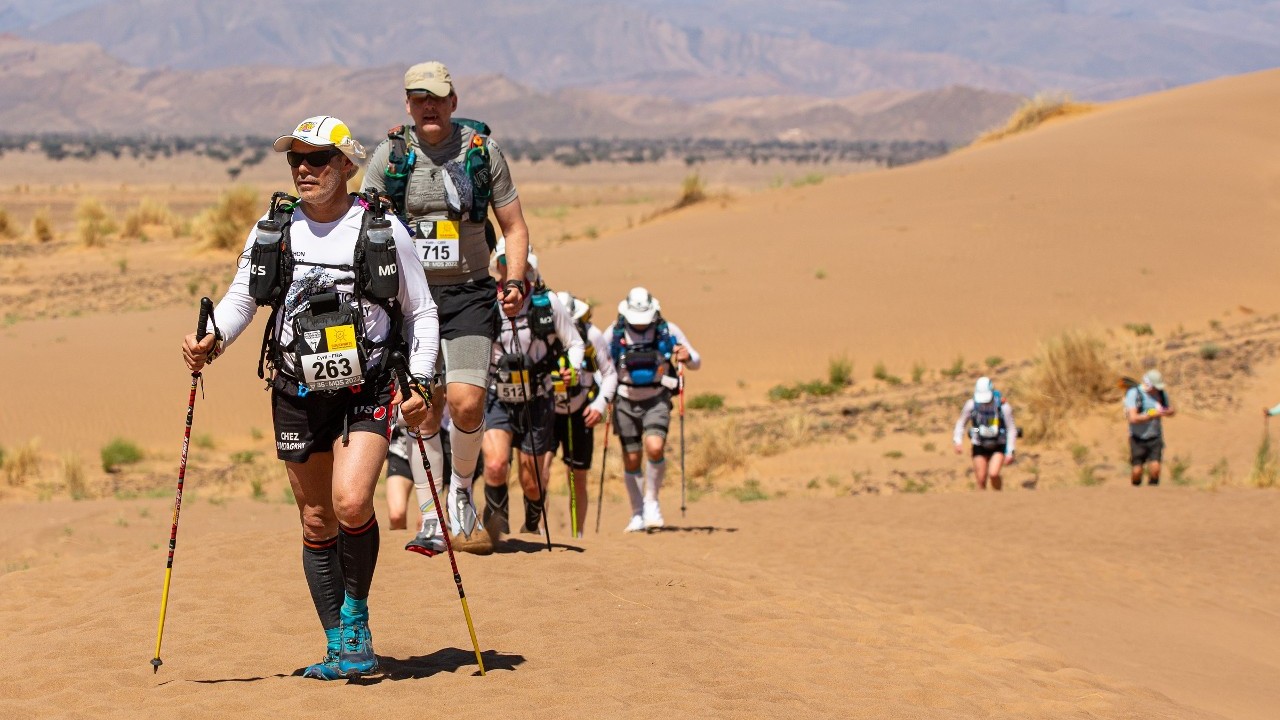
The 2023 Marathon des Sables takes place between Friday, April 21 and Monday, May 1 in Southern Morocco .
Marathan des Sables runs a race tracking website to follow competitions. They do so by tracking the geolocation through ‘spot’ tags. We will include a link to the tracking website once it becomes available.
The tracking devices will allow the race organiser to ensure no competitors get lost on the course.
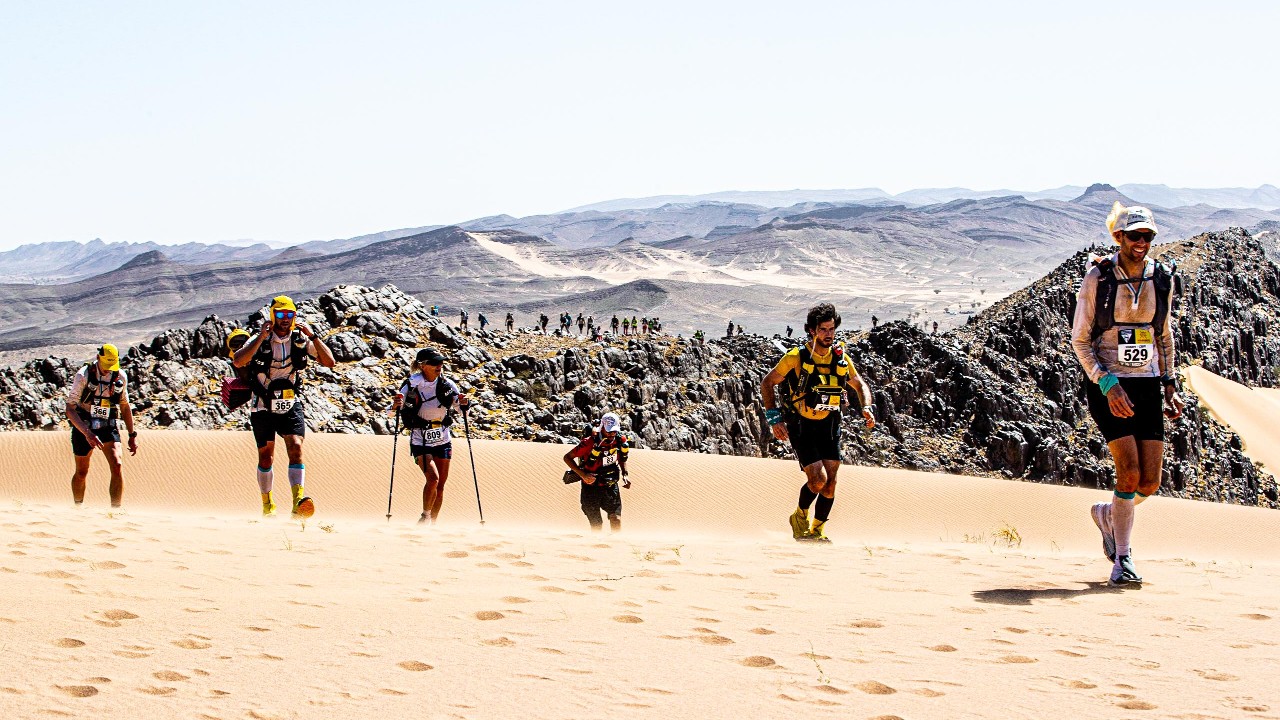
Marathon des Sables Race Route
The exact route of the race is unknown, but the distance – 250km – is known, and will be split up into six stages over seven days.
In addition to the distance, competitors must also combat the rough Saharan terrain, debilitating heat as well as carrying their supplies.
Although the course is yet to be confirmed – other than the approximate distance – there are checkpoints every five to nine miles where runners will be able to pick up fresh water, dump trash and receive medical attention.
The course will be marked every 500m (dependent on the terrain) and each runner will be given a detailed book of the course.
Facts, Tips & FAQ
With the length of the course, the terrain, and the heat, runners will need to take all advice on board before committing in the Marathon des Sables.
Runners will need to bring, and carry, their entire food intake – between 21,000-28,000 calories for the seven days. Freeze-dried food is the recommended choice in an effort to reduce the amount of weight carried on course.
Proteins, fats and carbohydrates are the most important food groups. Water will be provided – with 120,000 litres consumed during the event – at the departure point, check-points and arrival on each day.
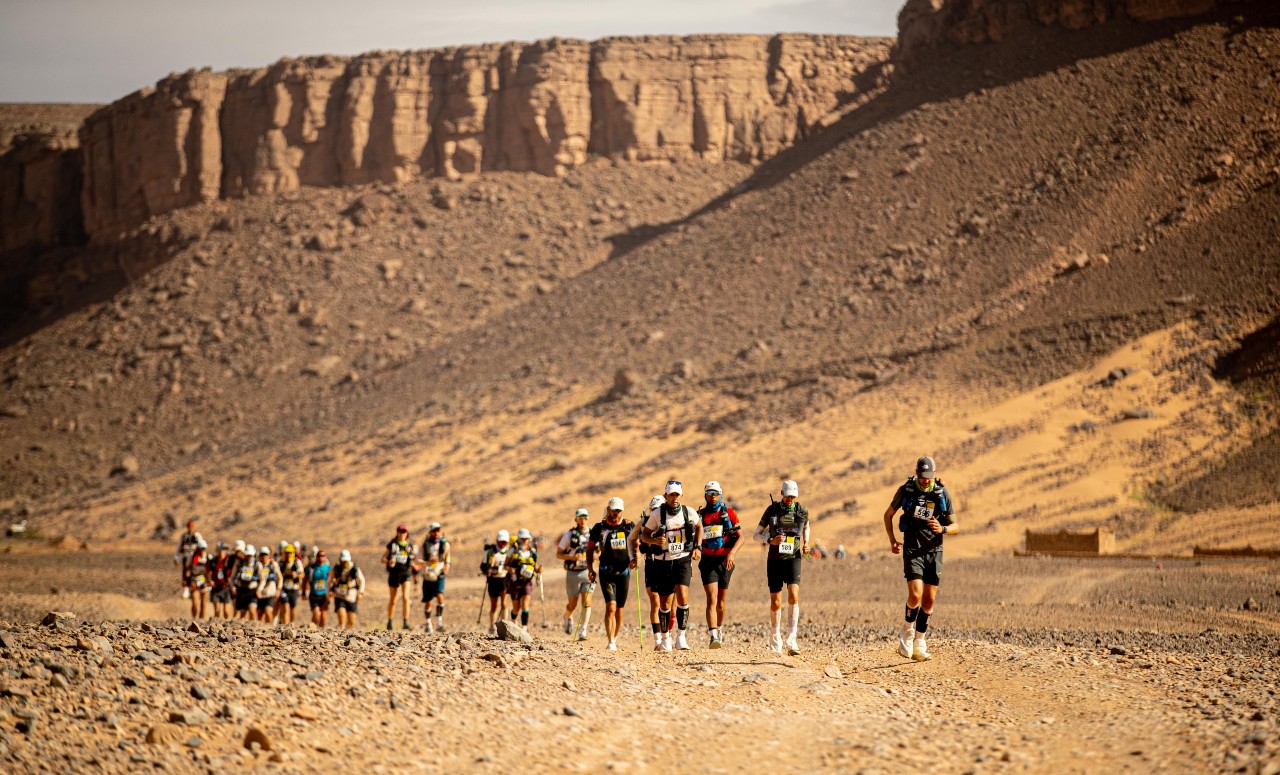
The course is the equivalent of five and a half regular marathons while you carry equipment on your back – walking parts of the course is completely acceptable.
Mental preparation is as important as physical preparation for the event, the challenge to complete the course is tough and can be mentally draining.
With the temperature in the Sahara peaking at 50 degrees Celsius, headwear is a must. Wildlife on the course, including snakes, are rarely seen. However, runners are advised to check their kit thoroughly prior to embarking each day.
Marathon des Sables puts on Bivouacs – eight-man tents with groundsheets. These are allocated prior to the races and runners must choose their tent from within the space reserved for their registration country.
How to enter the Marathon des Sables
Runners can enter the race by the Marathon des Sables official website via the registration page. The cost of entry for the event is €3,190 for an individual entry and €3,290 per team member for teams.
The official website lists number of requirements to compete:
- Accept the rules, which govern the race.
- Meet all deadlines for payments.
- Meet all deadlines for completion of registration forms (an online form must be completed after registration).
- Keep your contact details up to date.
- Provide a sealed letter addressed to the Medical Director if you are undergoing long-term treatment for any chronic disease.
- Provide an ECG and medical certificate signed by a doctor. This must be presented the day before the start of the race.
- Take out insurance that will (as a minimum) cover you for cancellation in case of illness or injury prior to the race.
Marathon des Sables records and past winners
Men’s Past winners
- 10 – Lahcen Ahansal (Morocco) – 1997, 1999-2007
- 9 – Rachid El Morabity (Morocco) – 2011, 2014-2019, 2021-22
- 5 – Mohamad Ahansal (Morocco) – 1998, 2008-2010, 2013
- 4 – Hassan Sebtaoui (France) – 1987, 1989-1991
- 3 – André Derksen (Russia) – 1994-1996
- 2 – Mohamed Bensalah (Morocco) – 1992-93
- 2 – Bernard Gaudin (France) – 1986, 1988
- 1 – Salameh Al Aqra (Jordan) – 2012
Record Time: Bernard Gaudin (France) – 1988 (14:39:44)
Women’s Past Winners
- 3 – Laurence Fricotteaux-Klein (France) – 2007, 2011-12
- 3 – Simone Kayser (Luxembourg) 2002, 2004-05
- 2 – Elisabet Barnes (Sweden) – 2015, 2017
- 2 – Touda Didi (Morocco) – 2008-09
- 2 – Rossana Pellizzari (Italy) – 1997-98
- 2 – Moniqúe Frussote (France) – 1991-92
- 2 – Marie-Ange Malcuit (France) – 1987-88
- 1 – Anna Comet (Spain) – 2022
- 1 – Aziza Raji (Morocco) – 2021
- 1 – Ragna Debats (Netherlands) – 2019
- 1 – Magdalena Boulet (USA) – 2018
- 1 – Natalia Sedykh (Russia) – 2016
- 1 – Nikki Kimball (USA) – 2014
- 1 – Meghan Hicks (USA) – 2013
- 1 – Mònica Aguilera Viladomiu (Spain) – 2010
- 1 – Géraldine Courdesse (France) – 2006
- 1 – Magali Juvenal (France) – 2003
- 1 – Franca Fiacconi (Italy) – 2001
- 1 – Pascal Martin (France) – 2000
- 1 – Lisa Smith (USA) – 1999
- 1 – Anke Molkenthin (Germany) – 1996
- 1 – Béatrice Reymann (France) – 1995
- 1 – Valentina Liakhova (Russia) – 1994
- 1 – Irina Petrova (Russia) – 1993
- 1 – Claire Garnier (France) – 1990
- 1 – Claude Battistelli (France) 1989
- 1 – Christiane Plumere (France) – 1986
Record Time: Béatrice Reymann (France) – 1995 (21:25:22)
*No race in 2020.
Marathon des Sables kit list
Mandatory equipment:
- backpack MDS or equivalent
- sleeping bag,
- head torch and a complete set of spare batteries,
- 10 safety pins,
- compass, with 1° or 2° precision,
- lighter,
- a whistle,
- knife with metal blade,
- tropical disinfectant,
- venom pump,
- a signalling mirror,
- one aluminium survival sheet,
- one tube of sun cream,
- 200 euro or equivalent in dirhams
- passport or for Moroccan residents, identity card valid at least until the end of the stay in Morocco. BUT for security reasons, it is strongly recommended to have a passport valid at least one month later; failing this, AOI declines all responsibility
- original medical certificate provided by AOI, filled in and signed by the doctor
- original ECG and its tracing
Marathon Kit:
This is supplied by the organisers and is issued during the technical and administrative checks in Morocco. It will include:
- a road book issued on 21 April,
- Identification marks (see list ART.8),
- salt tablets,
- sachets for the toilets
A luminous stick will be issued at CP3 of the non-stop stage. The distress beacon must be given back to the organization at the finish line.

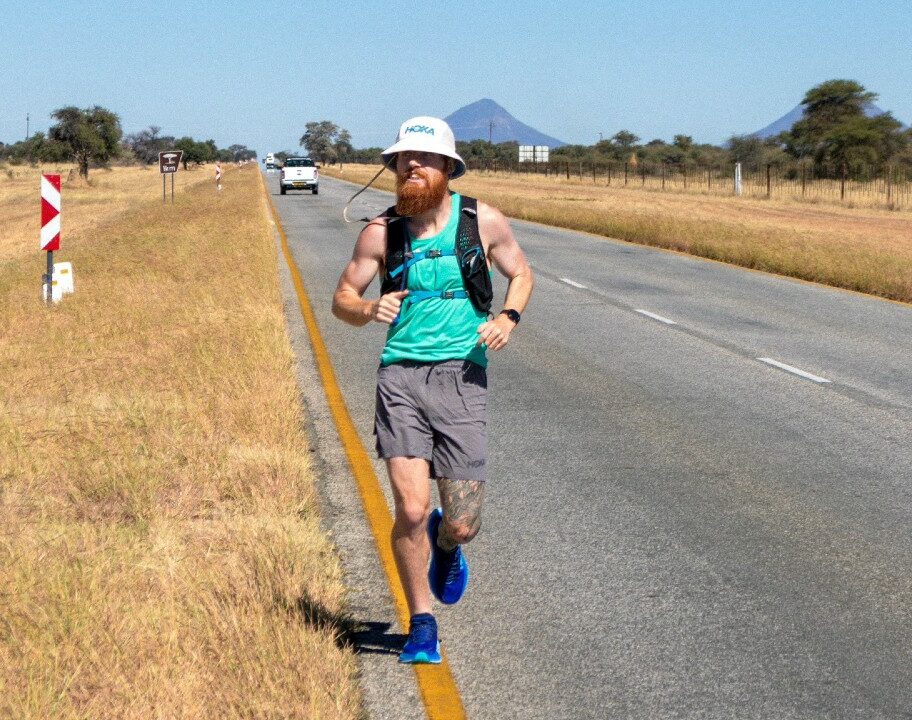


![Ultrarunner James Nobles [Photo credit: Team Montane]](https://staging-run247.kinsta.cloud/wp-content/uploads/2024/02/James-Nobles-1-912x720.jpg)
